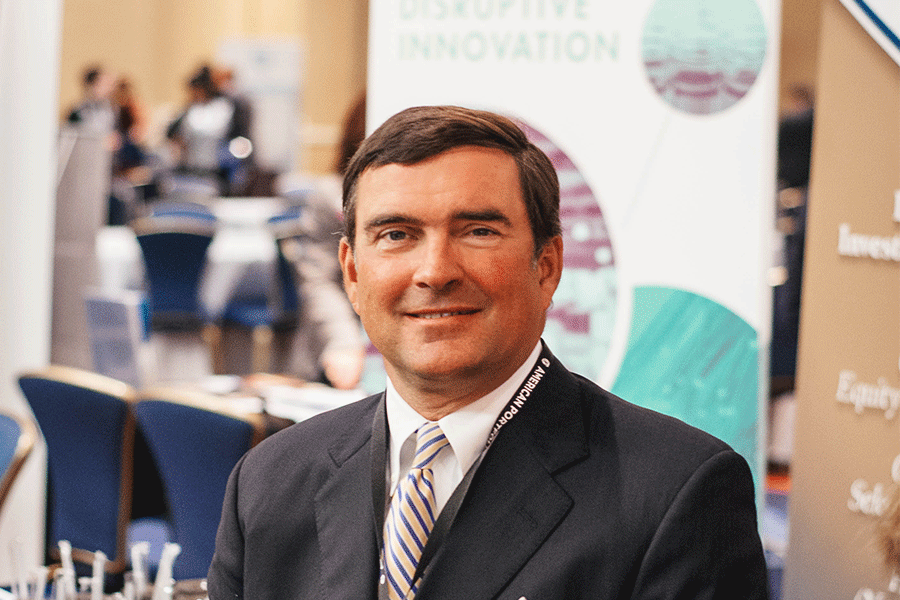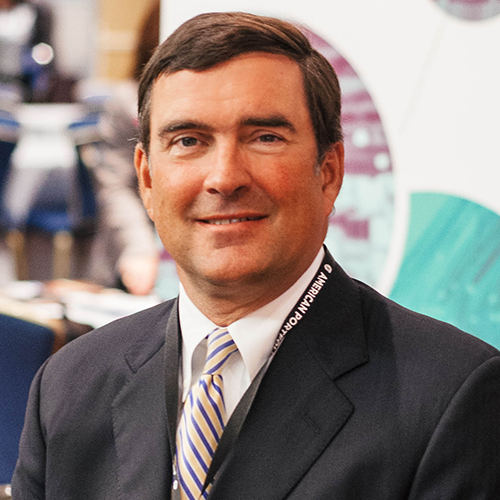


When it comes to investing clients’ assets, Sandhill Investment Management’s approach can be summed up quickly: Do deep research to find the best opportunities across the market-cap spectrum, package those ideas in a concentrated portfolio where each position adds value, and don’t get so lost in the numbers that you miss the intuitive, long-term growth trend. That process has worked well for the Buffalo-based boutique, whose executives attribute the consistency of returns as one of the biggest differentiators in its clients' experience. In a brief interview with InvestmentNews Content Strategy Studio, Sandhill founder Edwin "Tim" Johnston III sat down to discuss what sets his investment firm apart. Excerpts from the interview follow.
Why do you believe concentrated portfolios are the optimal way to add alpha? How can they add value in the current market environment?
We continue to believe everything we learned about the efficient frontier … 30 stocks will get an investor the maximum potential return per unit of risk. When you manage a large portfolio of, say, 100 stocks, it’s hard not to revert to the mean. You start to look like an index.
While we believe a concentrated portfolio is the optimal way to add alpha in any period, we also believe it’s particularly relevant today. Markets are volatile. If you have a concentrated portfolio, it’s easier to stay focused on that small set of stocks, have conviction in those companies and management teams, and move quickly to use volatility on the downside as a buying opportunity.
If your portfolio is concentrated, what do you do to keep returns more consistent?
The fact is, equity managers cannot completely protect you from broad stock market volatility. I think most investors understand that. But volatility isn’t the only risk out there. The real risk is the quality of assets you own. We’re very focused on balance sheet risk and operational risk. We avoid companies with high leverage and create portfolios of high-quality companies that are cash flow generating machines. Broad markets may be down for a period, but we believe our portfolios hold a small number of high-quality assets that will be worth a lot more money over the long term.
In addition to running a concentrated portfolio, you also invest across the market-cap spectrum. Explain your reasoning for the broader approach.
The number of public companies has shrunk over the past two decades. With markets less deep, it’s imperative to span the entire market-cap spectrum to find the best opportunities. A smaller universe also makes it easier to span.
There’s a statistic I like to share with clients that shows the value of investing across the market caps … If history is any guide, roughly a third of the market’s capitalization in the next 25 years, doesn’t even exist today. You don’t want to be limited in market capitalization where you can’t invest in a younger company, or a company that has grown or merged and become too large for your coverage area.
What would you say differentiates your investment process from other firms?
We’re in the field of finance – so we obviously dig into numbers, financial metrics and earnings models. But I think what makes us different is that we don’t let the math make us too linear in our thinking. We don’t want linearity to cause us to lose our creativity. We strive to understand the motivations of a CEO or other members of management.
I think that non-linear approached has helped us grasp long-term trends before other investors might. Understanding the implications of the software-as-a-service model is a good example. In 2021, everyone understands the benefits of a subscription-based, SAAS model. But that wasn’t the case a decade ago. When technology companies were switching to a SAAS model back then, it could mean an initial 25% drop in revenue or 90% drop in earnings. We didn’t run away from those firms. We spent our time thinking intuitively about whether the SAAS model was something that was going to stick. Does it make sense? Will the customer pay the price? As the company moves to a recurring revenue model, will the market pay a higher multiple for the stock? Those are intuitive questions that transcend math.
Tell us about your research team and their process.
It’s a cohesive group that has worked together for 12 years. To challenge ideas, we have more than one analyst look at each stock. In terms of our research process we can be very detailed and granular. Talking to executives and getting unscripted answers is an important aspect of what we do.
What are you most proud about in your firm’s history?
If I had to pick one thing, I would say it was the stewardship of our clients’ assets during the 2008-2009 financial crisis. The market was down 54% from peak to trough. Every one of our clients in our flagship strategy (Concentrated Equity Alpha) who had invested by January 1, 2007 made it all back by December 31, 2009. A lot of other investors still weren’t whole at that point. More broadly, I believe clients have appreciated the consistency of our returns, and that we’ve generated those in a responsible way without big hits relative to the rest of the market.
For further information on Sandhill, please contact Emerge at [email protected] or call 1-877-8EMERGE
This article is for informational purposes only and does not constitute, either explicitly or implicitly, any provision of services or products by Sandhill Investment Management or Emerge Capital Management. Sandhill Investment Management (“Sandhill”) is a registered investment advisor with the Securities and Exchange Commission that is not affiliated with any parent company. Emerge Capital Management, Inc., is an authorized distributor for Sandhill, and a registered investment adviser with the Securities and Exchange Commission ("Emerge"). Third-party information in this report has been obtained from sources believed to be accurate; however, neither Sandhill nor Emerge makes any guarantee as to the accuracy or completeness of the information. All statements made in the article are strictly the beliefs and opinions of Sandhill. The Concentrated Equity Alpha Composite includes all discretionary non-wrap fee paying accounts in the all-cap core strategy which may hold large, mid, and small capitalization U.S. common stocks, American Depositary Receipts (A.D.R.’s), domestic ETF’s, sector ETF’s, and cash. Accounts with securities that are not part of the all-cap core strategy are not included in the composite.

Rajesh Markan earlier this year pleaded guilty to one count of criminal fraud related to his sale of fake investments to 10 clients totaling $2.9 million.

From building trust to steering through emotions and responding to client challenges, new advisors need human skills to shape the future of the advice industry.

"The outcome is correct, but it's disappointing that FINRA had ample opportunity to investigate the merits of clients' allegations in these claims, including the testimony in the three investor arbitrations with hearings," Jeff Erez, a plaintiff's attorney representing a large portion of the Stifel clients, said.

Chair also praised the passage of stablecoin legislation this week.

Maridea Wealth Management's deal in Chicago, Illinois is its first after securing a strategic investment in April.
Orion's Tom Wilson on delivering coordinated, high-touch service in a world where returns alone no longer set you apart.
Barely a decade old, registered index-linked annuities have quickly surged in popularity, thanks to their unique blend of protection and growth potential—an appealing option for investors looking to chart a steadier course through today's choppy market waters, says Myles Lambert, Brighthouse Financial.
